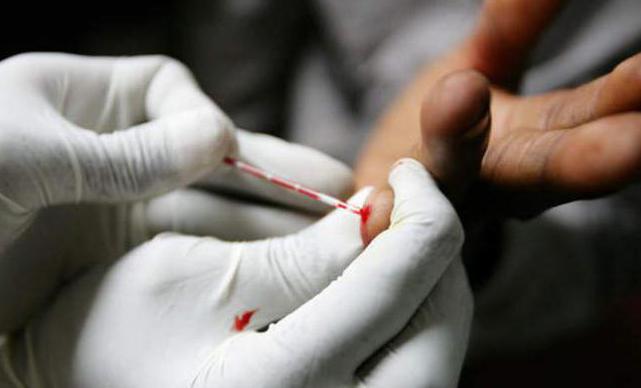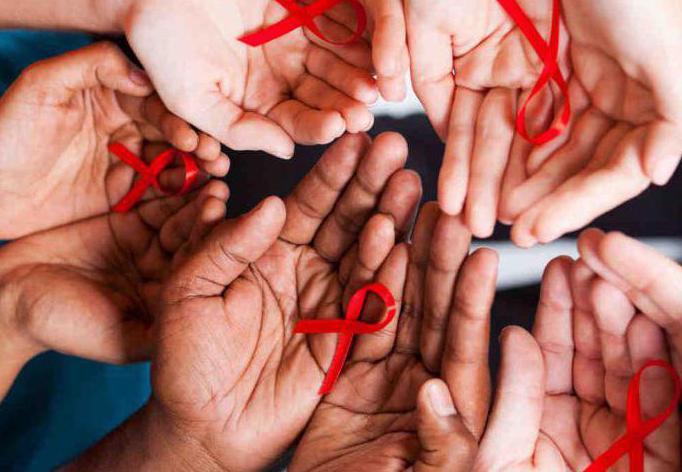Another person’s HIV infection is a criminal act, sanctions for which are established by Art. 122 of the Criminal Code. After all, an infected person, if the necessary care is not taken, exposes the people around him to serious danger. Of course, in some cases, the carrier of the virus may not be aware that he is sick with such a dangerous ailment, and accidentally infect another person with this disease. In this case, an infected person cannot be attracted for what they have done. After all, he was not aware that he was infected with HIV, so there was no intent in his actions. You will learn more about all this from our article.
General

What is HIV? This question is of interest to many people who have heard about this disease from others more than once. So, as it turned out, HIV is a viral infection that penetrates the human body and begins to slowly destroy it. Thus, a person’s immunity is greatly reduced, he often starts to get sick and can die from any disease that will not be fatal for a healthy citizen.
What do you need to know?

The most common methods of contracting a fatal illness:
- sexual intercourse without contraceptives (condoms), as well as promiscuous external communication;
- through the blood - most often drug-addicted people become infected in this way, who do not wonder about the fact that they can get HIV, because for them the main thing is to get the desired dose of the prohibited substance;
- from mother to child - the danger for the baby here is that the mother may not take special therapy so that her baby is born without the presence of this virus in the blood, and the latter can infect the baby through breast milk, which is extremely dangerous; (delivery in HIV-positive women is carried out only by caesarean section);
- through a man’s seminal fluid or a woman’s vaginal secretion;
- non-sterile and contaminated medical instruments;
- HIV can be infected through saliva only if there is a wound in the patient’s mouth and the saliva mixed with the blood of the infected person.
However, a person infected with this virus may not know for a long time that he has a terrible disease. Will there be liability in accordance with Art. 122 of the Criminal Code? The answer here is simple. Of course, a person who did not know that he was infected with HIV and did not follow the precautionary rules would not be brought under this article for what he had done. Indeed, in his actions there was no intent to inflict irreparable harm to the health of another person.
How to be understood?

If we turn to the norm fixed in the first part of Art. 122 of the Criminal Code, you can immediately see that it is only a deliberate infection of HIV. Here it must be pointed out that in this case a person infected with a deadly virus also knows that he has this ailment. Nevertheless, the latter consciously performs actions that jeopardize another person's HIV infection. For example, having sexual intercourse without a condom or using the same injection tool (relying on the fact that nothing will happen and a healthy citizen will not catch a fatal infection).
If infection has occurred
In this case, the person carrying the HIV virus will be brought under article 122 of the Criminal Code of the Russian Federation for what he did, but only if the infected person knew in advance that he was sick with this dangerous ailment. But how can one know that a citizen intentionally infected another person with this disease? After all, an attacker can say that he did not know that he had HIV.
In this case, everything is quite simple.After all, people who know that they are sick with such a fatal illness, are specially registered in the hospital with an infectious disease specialist and take therapy to maintain their health. Therefore, it will not be difficult for law enforcement officers to establish this fact.
Some attackers intentionally infect others with a deadly virus, after which they admit it. The punishment in this case can be up to five years in isolation from society.
The most important thing
So, as already mentioned earlier, infection of a healthy person with HIV is punishable by law. Responsibility for intentionally infected another person is prescribed in Art. 122 of the Criminal Code. The object of this crime is considered to be the safety of life and human health. After all, this is precisely what the criminal encroaches upon, infecting other people with HIV.
In addition, it is not uncommon for infected people to smear the railing in the stairwells with their blood, as well as throwing used syringes or sticking them into seats in movie theaters and other public places. This was done by the latter in order to infect as many healthy people as possible with a dangerous ailment. Most infected people wanted to do this because of revenge.
Subject and object of crime
Separately, it is necessary to note the subject of the criminal act.
In this case, it can be not only infected citizens who are already 16 years old, but also an official (special subject), who, due to dishonest performance of his duties, allowed HIV to be infected by a completely healthy person.
The subjective side is characterized by intent and carelessness, negligence. The latter applies to those persons who, when their professional duties were improperly performed, allowed healthy people to become infected with the deadly virus.
The objective side of the deed is deliberately putting the person at risk of HIV infection or human infection with this disease.
The object, as mentioned earlier, is the safety of human life and health.
Nuance

If a person infected with a fatal illness warned another person about his illness in advance, then the HIV patient will be released from punishment if the infection of the partner does occur. Most often this happens between spouses and cohabitants. Indeed, many people simply turn a blind eye to the fact that a loved one has HIV, and live with it.
It should also be noted here that in this case only those persons who committed the acts recorded in the first and second parts of Art. 122 of the Criminal Code.
Special qualification

But what can an attacker living with a diagnosis of HIV expect if he, knowing his diagnosis, has infected a citizen who is not even 18 years old or several people with the virus? With the proven composition of the criminal act, the latter will face the punishment recorded in part 3 of article 122 of the Criminal Code. And this is up to eight years in places of isolation from society. In addition, in the form of additional sanctions, the judiciary may prohibit certain activities.
Comment
Sanctions for the infection of healthy people with such a dangerous ailment as HIV are prescribed in article 122 of the Criminal Code of the Russian Federation. It is impossible not to disagree with the comments of 2017. After all, infected people who know about their illness in advance are required to be careful when they come into close contact with citizens who are not carriers of this virus. In addition, HIV-positive people should warn their partners in advance that they have such a fatal ailment. Otherwise, the latter are obliged to bear responsibility for the deed to the fullest extent of the current law.
On practice

Anything happens. In addition, law enforcement officers do not always succeed in proving that a person was infected with HIV within the walls of a medical facility during a blood transfusion or from a specific citizen who carries the virus. Thus, the judicial practice under Art. 122 of the Criminal Code is quite diverse.
In certain situations, citizens live with one partner for a long time, and then find out about the terrible diagnosis of the latter. Who will be to blame here? Of course, that partner who has contracted HIV and sexually transmitted virus to another person. But to prove the fact that this particular person did this can be very difficult, especially in cases where people have been using drugs together for a long time and have an immoral lifestyle.
Currently, the danger of HIV infection lies in wait for people almost everywhere. For example, in beauty salons, if the master makes manicures with unprocessed tools or stuffs a tattoo on a person’s body. Therefore, there is risk everywhere.
But the worst thing is that in practice there are also cases when people were infected with HIV in medical institutions. If a hospital employee took blood with non-sterile instruments, and even more so with a syringe that was already in use, then he could be liable for part 4 of article 122 of the Criminal Code of the Russian Federation. Practice also shows that often HIV infection occurs at stations where blood transfusions are carried out. Because not all health workers treat their duties properly.